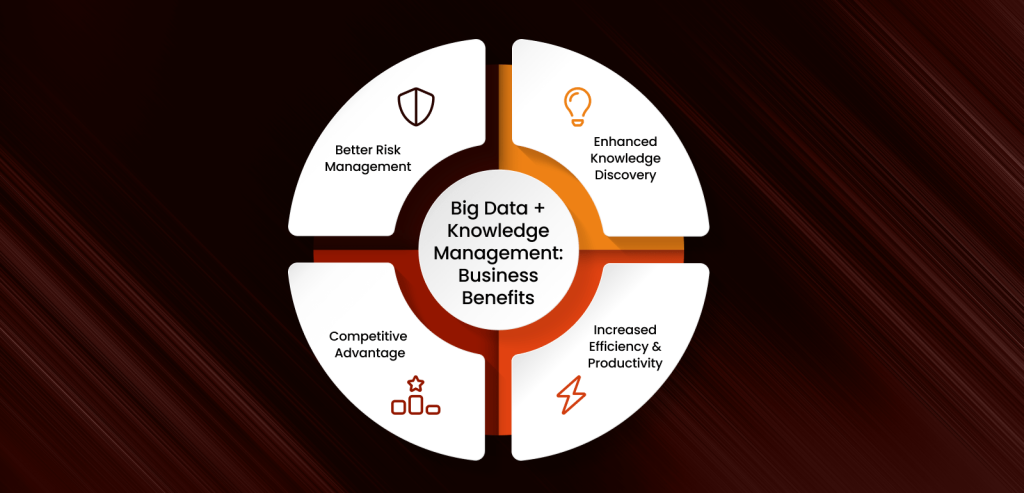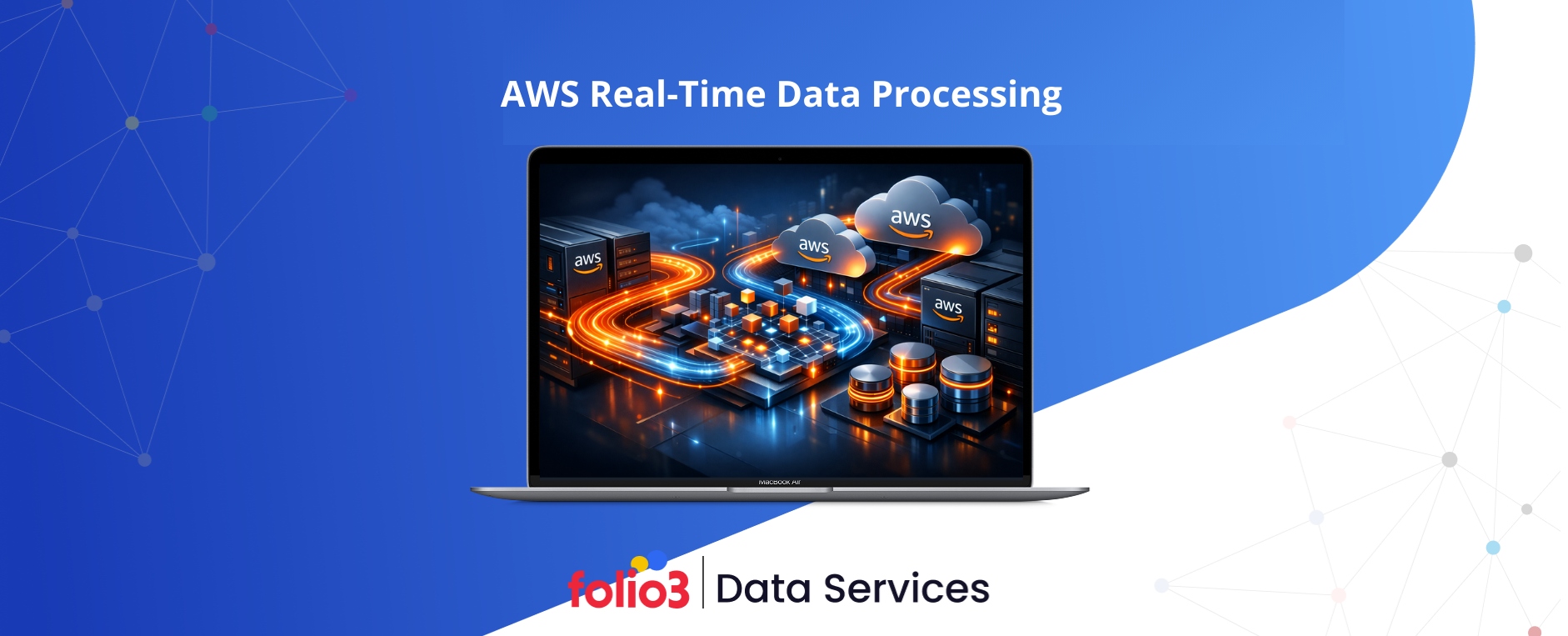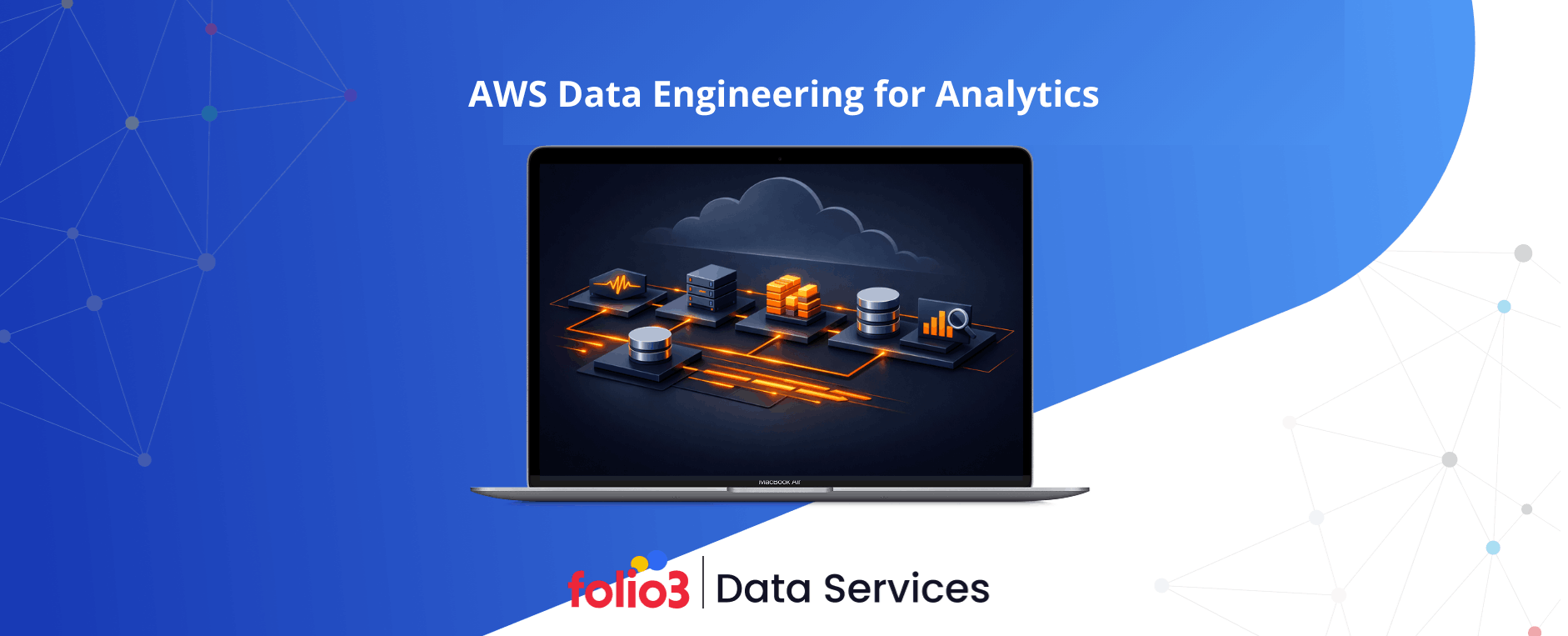Businesses generate and consume vast amounts of data every second. This explosion of information, often called “Big Data,” has transformed how organizations operate, make decisions, and engage with customers.
Concurrently, knowledge management (KM) has become increasingly important as companies strive to harness the collective expertise within their organizations to foster innovation and improve efficiency.
When combined, Big Data and knowledge management create a powerful toolset that can drive significant business benefits.
The Rise of Big Data in the Digital Age
The rise of Big Data is one of the most significant technological advancements of the 21st century. With over 2.5 quintillion bytes of data generated daily, businesses are now tasked with managing and extracting valuable insights from this immense information.
Integrating Big Data with knowledge management enables organizations to use data-driven insights to enhance decision-making processes, streamline operations, and ultimately gain a competitive advantage.
Studies have shown that 90% of the world’s data was created in the last two years alone, illustrating the rapid growth and importance of Big Data.
This data comes from various sources, including social media, transaction records, sensors, and more, offering a wealth of knowledge that, if properly managed, can transform businesses across all industries.
What is Big Data?
Big Data refers to the vast and complex data sets that traditional data processing methods cannot efficiently handle. These data sets are characterized by the three V’s: volume, velocity, and variety.
- Volume pertains to the enormous amounts of data generated every second.
- Velocity refers to the speed at which data is generated and needs to be processed.
- Variety indicates the different data types, such as structured, semi-structured, and unstructured.
Big Data encompasses all types of information, from customer behaviors and transaction records to social media interactions and sensor data.
The challenge lies in collecting this data and analyzing it to uncover meaningful patterns and trends that can inform business decisions. Leveraging data strategy consultation can help organizations navigate these complexities, ensuring they derive maximum value from their Big Data initiatives.
What is Knowledge Management?
Knowledge management (KM) involves creating, sharing, using, and managing an organization’s knowledge and information. By ensuring that valuable knowledge is readily accessible to those who need it, KM aims to enhance organizational learning, improve decision-making, and foster innovation.
Organizations can prevent knowledge loss, enhance collaboration, and drive continuous improvement by effectively managing knowledge. KM includes a wide range of activities, such as:
- Knowledge creation: Developing new insights and solutions from existing knowledge.
- Knowledge sharing: Disseminating knowledge across the organization ensures everyone has access to the necessary information.
- Knowledge application: Using the shared knowledge to solve problems, make decisions, and improve processes.
Benefits of Integrating Big Data and Knowledge Management in Your Business
Integrating Big Data and knowledge management offers numerous benefits that can propel businesses forward. By combining these two powerful approaches, organizations can unlock new opportunities for growth, efficiency, and innovation.

A. Enhanced Knowledge Discovery
One of the most significant advantages of integrating Big Data with knowledge management is discovering new knowledge and insights. Big Data analytics allows organizations to identify patterns and trends previously hidden within vast data sets. Businesses can uncover valuable insights that drive strategic decisions and improve overall performance by applying data mining techniques.
For example, data analytics can help businesses identify customer preferences, predict market trends, and optimize operations. This newfound knowledge can then be integrated into the organization’s knowledge management system, making it accessible to all employees and fostering a culture of continuous learning.
B. Increased Efficiency and Productivity
Big Data can significantly streamline knowledge management processes by automating data handling and analysis tasks. Traditional KM processes often involve manual data collection, analysis, and dissemination, which can be time-consuming and resource-intensive.
However, these processes can be automated with Big Data technologies, reducing the time and resources required to manage and utilize knowledge effectively. For instance, AI-driven KM systems can automatically extract and organize relevant information from Big Data sources, making it easier for employees to find and apply the needed knowledge.
This increases efficiency and boosts productivity, as employees spend less time searching for information and more time focusing on value-added tasks.
C. Better Risk Management
Risk management is more critical than ever in today’s volatile business environment. Integrating Big Data and knowledge management can enhance an organization’s ability to foresee and mitigate risks. Powered by Big Data, predictive analytics enables businesses to anticipate potential dangers by identifying early warning signals and patterns.
For example, in the financial sector, Big Data analytics can detect fraudulent activities by analyzing transaction data in real-time. This information can then be incorporated into the organization’s knowledge management system, providing employees with the knowledge to respond quickly and effectively to potential threats.
D. Competitive Advantage
Gaining a competitive edge is crucial for success in the highly competitive business landscape. Big Data and knowledge management can provide this advantage by enabling organizations to use data-driven insights to stay ahead of competitors.
By analyzing market trends, customer behaviors, and competitor strategies, businesses can develop innovative products and services that meet their customers’ evolving needs.
Furthermore, integrating Big Data with KM allows organizations to make informed decisions based on real-time data, giving them the agility to respond quickly to market changes. This proactive approach can lead to developing cutting-edge solutions that set the organization apart from its competitors, especially when paired with specialized snowflake consulting services that optimize data storage and processing capabilities.

Strategies for Effective Integration of Big Data and Knowledge Management in Your Business
Integrating Big Data with knowledge management requires a strategic approach to realize the full potential of these technologies. Here are some key strategies to consider:
A. Developing a Unified Data Strategy
To effectively integrate Big Data and knowledge management, businesses must develop a unified data strategy that aligns Big Data initiatives with KM objectives. This involves creating a centralized data repository where all relevant data is stored, making it easily accessible for analysis and knowledge sharing.
A well-defined data strategy ensures that data is collected, processed, and analyzed to support the organization’s KM goals. It also facilitates seamless collaboration across departments, as everyone can access the same information, enabling more informed decision-making.
B. Leveraging AI and Machine Learning
Artificial Intelligence (AI) and Machine Learning (ML) are powerful tools that can enhance the integration of Big Data and knowledge management. AI-driven KM systems can automate the extraction, organization, and dissemination of knowledge, making it easier for employees to access the necessary information.
For example, AI algorithms can analyze vast amounts of data to identify relevant knowledge, which is automatically categorized and stored in the organization’s KM system. This saves time and ensures that knowledge is up-to-date and readily available.
C. Data Engineering Consulting
A robust data infrastructure is essential for managing and processing Big Data effectively. Data engineering consulting services can help organizations design and implement scalable data architectures that support their KM systems. This includes setting up data pipelines, integrating various data sources, and ensuring that data is clean and ready for analysis.
With the proper data infrastructure, businesses can efficiently manage their Big Data initiatives and seamlessly integrate them with their KM processes.
D. Fostering a Data-Driven Culture
For Big Data and knowledge management integration to be successful, organizations must foster a data-driven culture. This involves encouraging data literacy across the organization and promoting a mindset that values data-driven decision-making.
Adopting a data-driven approach to knowledge management ensures that insights from Big Data are consistently captured, shared, and applied to improve processes and outcomes.
Training programs can help employees develop the skills to work effectively with Big Data and KM systems. Additionally, leadership roles should emphasize the importance of data and knowledge sharing, creating an environment where employees are motivated to contribute to the organization’s knowledge base.
Examples of Big Data and Knowledge Management in Retail
Retail leaders like Netflix and McDonald’s showcase how big data and knowledge management drive smarter decisions and richer customer experiences. By combining advanced analytics with organized knowledge sharing, they transform viewing habits, menu choices, and inventory insights into real-time actions that boost engagement, efficiency, and revenue.
1. Netflix
- Personalized Recommendations: Netflix analyzes user viewing history and preferences using big data, offering highly personalized recommendations for movies and TV shows.
- Content Prediction: The company leverages data to predict which shows will be popular, guiding content acquisition and production decisions.
- Thumbnail Optimization: Netflix tailors thumbnails and trailers based on individual user preferences, increasing engagement and click-through rates.
2. McDonald’s
- Customer Flow Prediction: McDonald’s uses big data to analyze customer traffic patterns, especially at drive-throughs, allowing for better staffing and resource allocation.
- Digital Menu Personalization: The company offers personalized menus based on weather, time of day, and purchase history, enhancing customer experience and sales.
- Inventory Management: McDonald’s uses big data to optimize inventory levels, reduce waste, and ensure product availability.
Knowledge Management vs Business Intelligence: A Detailed Comparison
| Aspect | Knowledge Management (KM) | Business Intelligence (BI) |
|---|---|---|
| Primary Goal | Capture, organize, and share organizational knowledge to improve decision-making and innovation. | Transform raw data into actionable insights to support strategic and operational decisions. |
| Focus Area | Tacit and explicit knowledge (human expertise, best practices, documents, collaboration). | Quantitative data analysis (historical, current, and predictive trends). |
| Data Type | Unstructured and structured content: reports, manuals, discussions, experiences. | Primarily structured data from databases, data warehouses, and transactional systems. |
| Core Processes | Knowledge capture, storage, retrieval, sharing, and collaboration. | Data collection, ETL (extract–transform–load), reporting, dashboards, analytics. |
| Tools & Technologies | Intranets, content/document management systems, collaboration platforms, wikis, knowledge bases. | Data warehouses, OLAP tools, reporting software, visualization dashboards, predictive analytics tools. |
| Key Users | Employees, subject-matter experts, project teams, knowledge workers. | Business analysts, executives, data scientists, operations managers. |
| Outcome | Enhanced organizational learning, innovation, and knowledge sharing culture. | Data-driven decisions, performance optimization, and measurable business insights. |
| Time Orientation | Continuous, ongoing knowledge enrichment and reuse. | Retrospective and real-time data analysis; can include forecasting. |
| Decision Support | Provides context, experience, and qualitative insights for complex problem-solving. | Provides quantitative evidence and metrics for strategic and operational decisions. |
| Integration | Integrates with collaboration and content management systems. | Integrates with data sources, analytics platforms, and enterprise applications. |
FAQs
How do Big Data and knowledge management integrate online shopping?
Big Data and knowledge management integrate online shopping by analyzing customer behavior, preferences, and history to personalize shopping experiences. This data-driven approach enables online retailers to offer tailored product recommendations, optimize pricing, and improve customer service, ultimately enhancing the shopping experience.
What is the role of Big Data in e-commerce?
Big Data plays a crucial role in e-commerce by providing insights into customer preferences, market trends, and inventory management. E-commerce businesses use Big Data to optimize their marketing strategies, personalize customer experiences, and make data-driven decisions that improve efficiency and profitability.
How can organizations benefit from data and knowledge management?
Data and knowledge management can benefit organizations by enhancing decision-making, improving efficiency, and fostering innovation. Businesses can stay competitive, mitigate risks, and drive continuous improvement using Big Data insights and effectively managing knowledge.
How will Big Data influence the future?
Big Data will continue to influence the future by driving advancements in AI, machine learning, and predictive analytics. As data grows in volume and complexity, businesses that effectively manage and analyze this data are better positioned to innovate, compete, and succeed in the digital age.
What is the key difference between Business Intelligence (BI) and Knowledge Management (KM)?
Business Intelligence focuses on collecting, analyzing, and visualizing structured data to guide data-driven decisions. Knowledge Management emphasizes capturing, organizing, and sharing both explicit and tacit knowledge such as best practices and insights to enhance organizational learning and collaboration.
Can Knowledge Management and Data Analytics work together?
Yes. Data Analytics provides data-driven insights, while KM ensures that the resulting knowledge and lessons learned are documented, shared, and applied across the organization to enhance future decision-making.
How does Knowledge Management help companies manage information effectively?
Knowledge Management provides a structured approach to capture, store, and share organizational knowledge. It ensures that valuable information is organized and accessible, reducing duplication of effort and improving decision-making.
What is considered an integral part of Knowledge Management?
An integral part of Knowledge Management is the process of capturing, organizing, and sharing both explicit and tacit knowledge. This ensures that valuable insights and expertise remain accessible across the organization.
how can knowledge management analytics improve business decisions?
KM analytics reveals how knowledge is created, shared, and used across the organization. By highlighting trends, gaps, and key insights, it provides decision-makers with reliable information that supports strategic and operational choices.
Final Words
Integrating Big Data and knowledge management is a powerful combination that can drive significant business benefits. By enhancing knowledge discovery, increasing efficiency, and providing a competitive edge, organizations can unlock new opportunities for growth and success.
As the digital landscape continues to evolve, businesses must embrace these technologies to stay ahead of the curve and thrive in an increasingly data-driven world. One way to do this is to partner with professionals in the big data world, like Folio3 Data Services.





